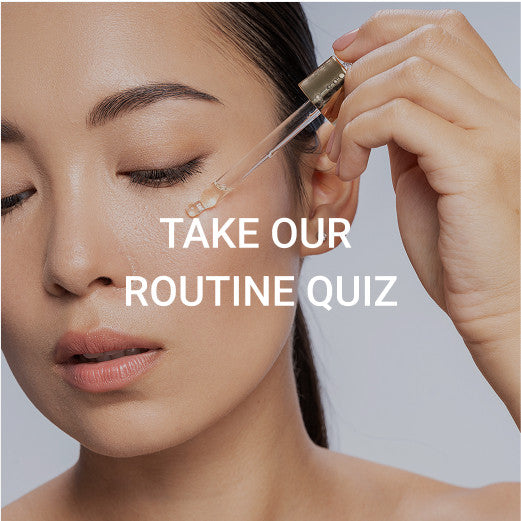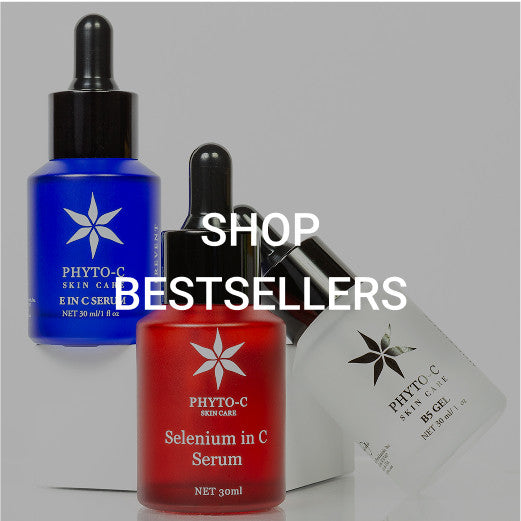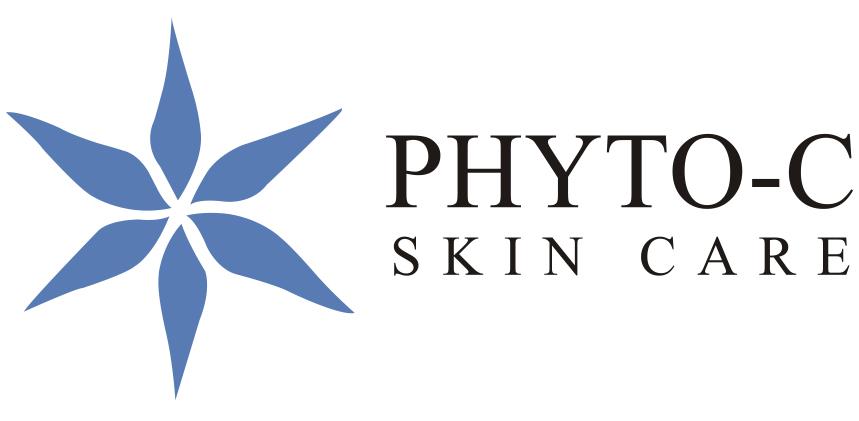A person with oily and acne-prone skin faces significant hurdles in managing their condition. The combination of persistent acne outbreaks and excessive facial oil together with inconsistent skin complexion defines this condition. The market showcases many skin treatment products, yet only a few appropriate solutions exist for both effectiveness and safety for oily-acne skin types. The pure and powerful substance L-ascorbic acid serves as vitamin C in its most effective form for delivering brighter and healthier skin with increased collagen levels while acting as a powerful antioxidant. This article demonstrates how L-ascorbic acid is the best vitamin C serum for oily acne prone skin that offers optimal benefits to people with oily and acne problems on their skin.
Common Issues Faced by Oily, Acne-Prone Skin
The makeup of oily skin produces various skin problems that acne-prone individuals need to manage regularly. The skin of someone with oily, acne-prone pores commonly develops multiple conditions that cause breakouts produce excessive sebum, and show blackheads, whiteheads, and large pores. Excessive oil manifests both as acne development alongside a difficult-to-control shiny and greasy appearance of the skin. Acne marks, together with rough texture, persist long after zits disappear from the skin. The removal of skin oil through acne products leads to the overproduction of additional oil by the skin as compensation. A perfect skincare solution remains an essential requirement due to this recurring pattern which is why you must consider vitamin c serum for oily skin review before the purchase.
Why consider the best face vitamin c serum for oily skin?
A major benefit of using the best face vitamin c serum for oily skin is as an antioxidant involves its positive impact on acne-prone skin conditions. The compound reduces skin inflammation, thereby helping to soothe current breakouts. The ingredient helps decrease the appearance of dark spots after acne stimulates collagen formation for better skin texture and lessens scars. The use of vitamin C protects against environmental threats, including pollution and UV rays, which tend to increase oil levels and cause acne outbreaks. Systematic use of vitamin C delivers two-fold benefits that include minor regulation of oil production and promotes a brighter, healthier-looking complexion.
Learn more about L-Ascorbic Acid being the superior form
Among all forms of vitamin C, L-ascorbic acid stands as the most widely researched and biologically potent compound. The substance shows water solubility properties to allow easy absorption through skin tissue. Skin cells do not require any conversion process to activate L-ascorbic acid compared to other derivatives of vitamin C. The substance works best for people who need rapid and discernible skin transformations. When applied on the skin, L-ascorbic acid combats free radicals while making complexion appear brighter and helps create new collagen structures. Because L-Ascorbic Acid requires careful packaging and storage, it remains the most unstable type. This derivative of vitamin c serum for oily skin benefits in treating acne scars together with uneven skin tone, specifically for people with oily and acne-prone skin.
Acne-Prone Oily Skins Benefit Significantly From L-Ascorbic Acid Use
L-Ascorbic acid functions well as an optimal product for oily skin due to its lightweight, water-based formulation. Fully dissolvable L-ascorbic acid penetrates the skin rapidly while leaving no oily film and reducing pores from becoming obstructed. L-ascorbic acid functions as an anti-inflammatory agent to decrease active breakouts and simultaneously reduce acne marks. The process it initiates for collagen production enables a decrease in both large pores and acne scarring appearance. As an antioxidant, L-ascorbic acid defends the skin against oxidative stress that produces worse acne conditions. The use of L-ascorbic acid leads to a slight improvement in controlling excessive oil production as time progresses. The combination of attributes makes L-Ascorbic Acid an optimal vitamin C serum for oily skin online for correct use on oily skin with acne issues.
Precautions to Follow When Using L-Ascorbic Acid
The effectiveness of L-ascorbic acid stands out, yet its use needs special attention. All users need to conduct the patch test before using the product on their entire face. Beginners should utilize 10-15% vitamin C strength for their first time using the product while keeping the serum in a dark environment at cold temperatures to stop oxidation.
What Can Happen If the Wrong Ingredients Are Used with L-Ascorbic Acid
The mix of improper ingredients with L-ascorbic acid leads to greater damage than benefits. The combination of L-ascorbic acid and benzoyl peroxide eliminates the possible benefits of both substances. Applying retinol or AHAs/BHAs with L-ascorbic acid incorrectly might produce harmful side effects that include skin peeling along with redness and possible over-exfoliation. L-Ascorbic Acid must be combined with caution because harsh scrubbing or alcohol-based toners tend to worsen skin irritations. The improper combination of products damages skin barrier strength, which results in an increased risk of acne breakouts coupled with heightened sensitivity. It is vital to read product labels before you apply skin products and prevent the overlapping of incompatible skincare elements. Before using multiple products in your skincare routine, it is best to seek advice from a dermatologist.
Which Ingredients Work Best with L-Ascorbic Acid?
The skin-safe combination of L-Ascorbic Acid with selected ingredients will enhance its benefits and preserve your skin equilibrium, particularly when dealing with oiliness and acne.
Vitamin E enhances the healing process of skin while providing enhanced free radical protection specifically beneficial for people with acne problems and red or dark spots.
The skin-drenching properties of hyaluronic acid protect against the drying effect of actives because strong ingredients tend to dehydrate the skin. The ingredient maintains skin barrier strength through its non-pore-blocking quality.
The application timing of niacinamide should differ from vitamin C protection because this active ingredient functions to manage inflammation while improving pore size and controlling oil production during nighttime hours.
Proper combination of these active ingredients creates skin that dampens breakouts and shows clear results while maintaining skin resiliency.
When to Apply L-Ascorbic Acid: Day or Night?
People achieve optimal results from L-ascorbic acid use by applying it in the early morning hours. Skin protection starts through its ability to defend against free radicals combined with protection against pollution and UV ray damage occurring daily. Mix L-Ascorbic Acid into your skincare routine by using it immediately after washes and prior to your moisturizer and sunscreen. Sanctioned usage of L-ascorbic acid at night will work for sensitive skin types and users applying additional active ingredients. The application of L-ascorbic acid needs to be separated from the usage of strong exfoliants or retinoids. Regular product use throughout the day or at night will produce optimal outcomes with persistent application.
How to Apply L-Ascorbic Acid Properly?
Start with clean, dry skin. Skip rubbing your face when applying the L-Ascorbic Acid serum because gentle patting is all that is required to benefit from its effects. Daily use of two or three drops will be sufficient. Physical application of treatment should be directed where acne scars and dull skin surface appear. The application process requires waiting one to two minutes before you move on to your moisturizer. Skin requires the application of sunscreen as the first step during daily morning routines to prevent sun sensitivity. The amount you need to apply should be minimal since the product packs significant strength. Avoid blending the L-ascorbic acid with other serums on your palms. Each product needs time to be absorbed properly by allowing layers to go on sequentially. Proper serum application together with careful technique allows you to protect your skin from irritation so you can achieve maximum serum outcomes.
Different strategies against oily conditions along with acne
The skincare power of L-ascorbic acid remains exceptional for treating skin color and acne, yet it delivers the best outcomes through personalized skincare routines made for oily-prone skin types. Addressing skin oiliness together with pore congestion needs a patient method combined with persistent treatment.
Two gentle sulfate-free cleansings each day are necessary to remove oil and dirt from the skin barrier properly. The skin requires a light, non-pore-clogging moisturizer, as hydration remains essential for people with oil-prone skin. People with oily skin should use light creams that prevent pore congestion even though these creams may trigger more breakouts.
Apply a BHA containing salicylic acid as an exfoliant no more than two times each week because it helps both clear pores and minimize surface oil. Using exfoliation more than necessary makes your acne worse, which is why you should handle your skin carefully. The skincare ingredient niacinamide controls oil production in your routine as it also provides soothing relief to inflamed skin.
- Don’t forget daily habits
- Always remove makeup before bed
- Avoid touching your face
- Replace all towels and pillowcase material with fresh and clean textiles regularly
Remember, it takes time for the skin to adapt to a new routine. Moving rapidly between skincare products at once should be avoided. Regular skin care treatment for the next 6 weeks will give you lasting results. Correct application of L-ascorbic acid through this strategy leads to long-term improvement of skin texture and clarity.
Conclusion
Among all vitamin C formulations, L-ascorbic acid delivers the best results for people dealing with oily and acne-prone skin. The brief texture of L-Ascorbic Acid, along with its quick absorption and antioxidant performance, matches well with acne-prone, acne-scarred, and oily skin types. When you apply L-ascorbic acid properly, it enhances skin texture along with tone without triggering any discomfort. The effective utilization of this ingredient requires proper usage knowledge along with pairing methods and suitable routine planning. Using Phyto-C products serves as a best vitamin C serum for oily skin recommended by dermatologist for achieving skin outcomes because they develop formulations that match individual skin requirements.


 My Account
My Account Our Story
Our Story Shipping Information
Shipping Information Returns
Returns FAQ
FAQ VIP Rewards
VIP Rewards Contact Us
Contact Us

 Next Post
Next Post